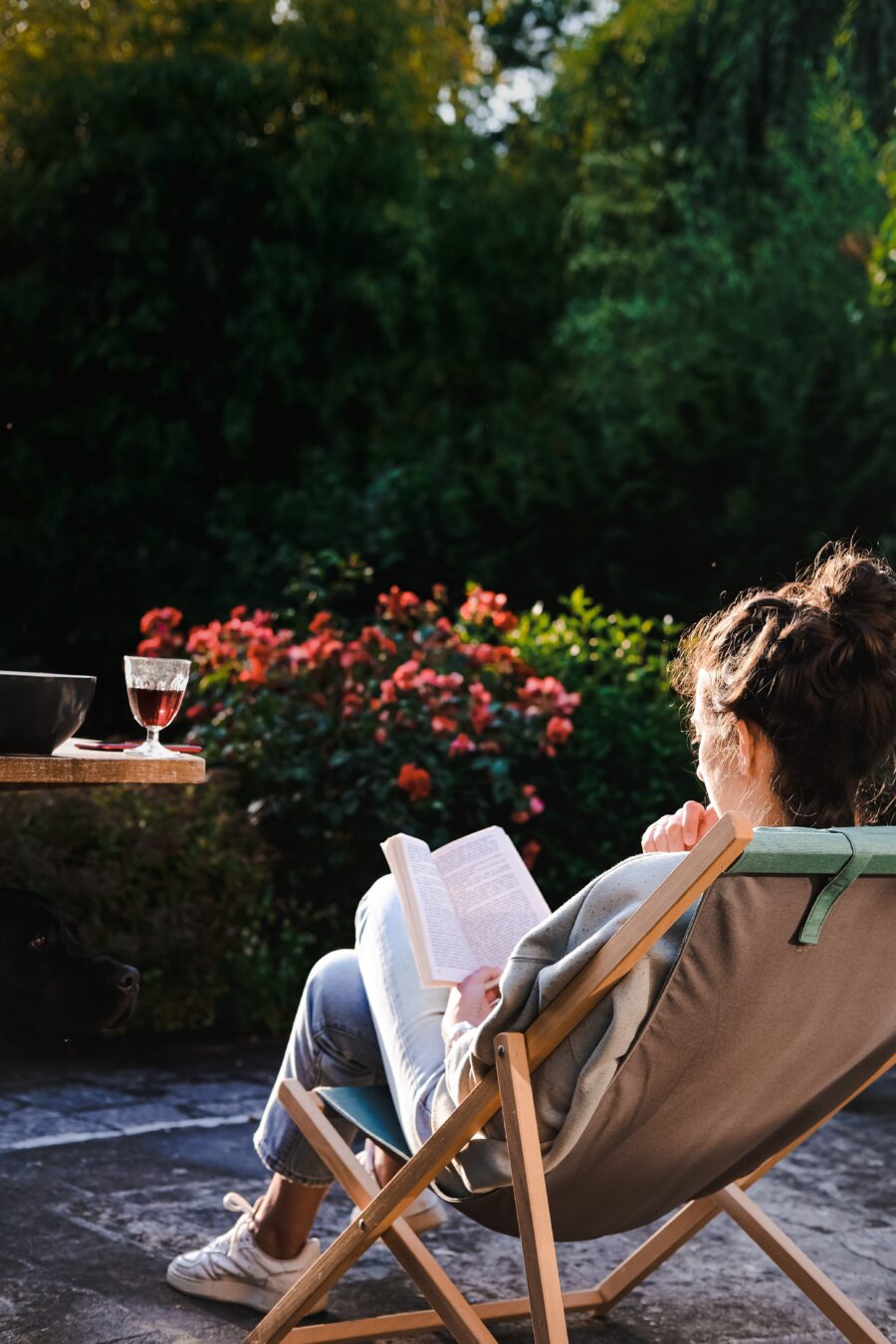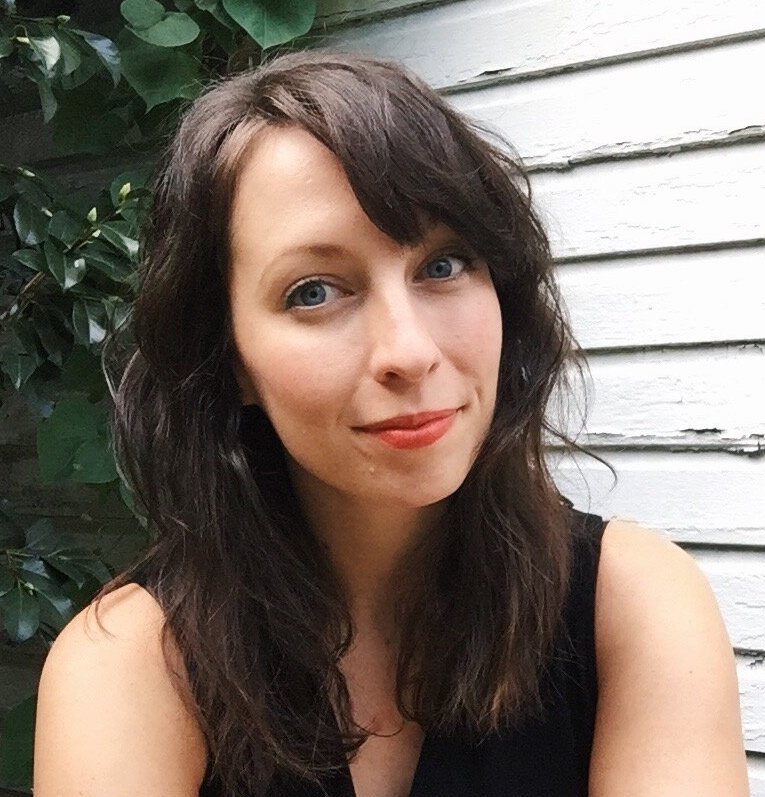
What Romance Novels Taught Me About Taking Pleasure More Seriously
Growing up, “pleasure” was a dirty word: pleasure was for well after the work was done, after you’d fully handled your responsibilities. And even as a kid, responsibilities were plentiful: homework and chores, extracurricular activities, family events, and the constant, endless tending of the great looming pressure of college prep. It was essential to be a serious, hardworking person, and this mandate governed me for many years of my life.
Growing up, “pleasure” was a dirty word.
I learned to hide my “guilty pleasures,” from boxed macaroni and cheese (a productive person would make it from scratch!) to reality TV (the gossipy kind, not the documentary kind) to a YouTube dance workout I did shamefully in my room, doors locked and shades drawn (can’t brag about mileage or PRs with thirty minutes of shimmying and twerking).
Reading was by far the easiest activity to hide in plain sight. Widely categorized by the adults in my life as productive, I was rarely questioned for spending time with my nose in a book. What I was reading mattered, but the way I talked about it mattered more: If I could justify my interest in reading YA dystopian fiction as a meaningful engagement with societal critiques, then I didn’t have to hide my pleasure in spending time in that world. Pleasure was an accidental side effect, and therefore it was perfectly acceptable.
The constant policing of my own enjoyment turned out to be exhausting.
But the constant policing of my own enjoyment turned out to be exhausting. And worse, it compromised what pleasure I was still able to take from my experiences. After all, if you spend the entire time you’re doing something trying to build up your arguments to defend it, you take away something vital from the experience. At best, you prevent yourself from being fully immersed in its pleasure; at worst, you remove all pleasure entirely.
The pandemic changed everything. Being home all the time, bombarded with bad news, our personal and professional lives smushed into a single, undercooked casserole that was fully visible on every Zoom, my relationship to pleasure shifted. First, it became a vital pursuit for my sanity—seeking out a moment to feel good was a necessary foil to endless stress. And secondly, I just didn’t have the bandwidth anymore to care about defending my choices. I was too anxious, too busy both playing catch up and somehow being proactive at the same time, navigating a new reality that took every one of my brain cells.
I was vent-texting to a friend one day, and she responded by leaving a bag of romance novels on my porch. At any other point in my life, I think the part of me that was trained to edit myself, even preemptively, would have politely thanked her and then ignored the books. After all, I went to grad school for creative writing where absolutely no one read (or admitted to reading) genre fiction. But I was tired. And I was bored, and anxious, and crawling out of my skin from the reality we were all living. I told myself there must be a reason that the romance market is the publishing industry’s bread and butter, and so I picked up a thick, brick-shaped regency romance and peeled back its glossy cover.
Art, at its most powerful, has this effect on us: a full hijacking of our consciousnesses, magically transporting us into the experience of someone else’s creation.
It had been a long time since I’d been sucked into a book like that. I’d forgotten the urgency, the sense that what was happening on the page was somehow happening in real time–like if I made the mistake of putting the book down even for a minute, I might miss what happened next. Art, at its most powerful, has this effect on us: a full hijacking of our consciousnesses, magically transporting us into the experience of someone else’s creation. It’s transformative and electrifying. It is, for me, a downright joy.
I read through the rest of the bag of books in just a few days. I couldn’t believe how quickly I was moving through them, how much fun I was having. Most nights I’d opt for a book and a glass of wine instead of joining my husband on the couch for a TV show. Snuggled in the pillows, wearing my favorite jammies, ready to dive back into the rich, fast-moving world of romance, I announced, more than once, to my husband, “I’m just having such a good time!”
I’d allowed this internalized idea that to have value, I must be “serious.”
I was a little outraged with myself for never trying this genre (or I should say, for actively avoiding it) before. I’d allowed this internalized idea that to have value, I must be “serious,” which meant preventing myself from trying anything already classified as “silly,” or “girly.” Even as I realized this, I still fought back little bursts of embarrassment.
But I loved reading these books. And so, after yet another endless day of Zoom meetings in between breastfeeding and digesting yet more horrible news from the outside world, I gave in to my natural desire to share: I posted a photo of my latest romance book on my stories. Why not? I asked myself. It’s just like any other book I’m reading. Why treat it as something dirty, when my experience of it is so lovely and good?
Why treat it as something dirty, when my experience of it is so lovely and good?
And then the funniest thing happened: dozens of women slid into my DMs. I am not exaggerating. Close to thirty women messaged me about this book. They were women I technically knew, even if it had been years since our interactions IRL. Effusive, joyful, gushing messages, spilling over with what they’d loved about the book, which other books in the series they’d read, and other romances and writers they recommended. During such a terrifying and isolating time, this was an undiluted wave of hope.
Without falling into the trap of defending the genre, here’s what I’ve learned after reading more than 200 romance novels in the last couple of years: these books are not trash. These are stories that center women’s pleasure, that present men who have to reckon with their own internalized misogyny to get the girl, and that celebrate friendship and ambition and desire on the character’s terms. I found these stories revelatory. These are stories written by women, for women, and the community is dynamic and committed. In addition to my informal book group gathering in my Instagram DMs, I found podcasts and discussion groups, even favorite audiobook performers whose work in the genre transformed my workouts from rote chores into the most indulgent treats.
And you better believe reading all of these steamy romances had a positive effect on my sex life. I felt the thrill of uncomplicated arousal. It was nothing like what I’d felt when I watch most mainstream sex scenes or even porn, both of which are guilty of presenting the female orgasm as a near-instant and reliable event from a foreplay-free, penis-in-vagina encounter. This is not the kind of sex you experience in a romance novel. Not only has the genre been producing sex positive content for decades, but it’s also fairly easy to find non-heteronormative romances, and a wide spectrum of what sexual encounters can actually entail (spoiler: a fully satisfactory male/female sexual experience doesn’t have to end with ejaculation, and *gasp* doesn’t even have to include ejaculation at all!).
You don’t, after all, come of age only once; a life is a series of new stages to navigate. But as adults, we tend to face each milestone alone.
When my friends and I were first becoming sexually active, we talked about everything. No detail was too private, no question taboo. We were collectively learning about pleasure, but also how to be safe and how to set boundaries. We were learning how to talk about sex. After we grew up and started settling into long term relationships, it became trickier to share as freely without compromising the privacy of our partners. So a door closed, and with it a resource for communication and perspective. This has always felt like a great loss to me. You don’t, after all, come of age only once; life is a series of new stages to navigate. But as adults, we tend to face each milestone alone.
While not exactly a replacement, romance novels and their communities provide a similar haven. Through the books, my friends and I have been able to use a framework from which to talk about sex as we go through new stages of adulthood, processing our changing circumstances, preferences, feelings, and bodies, all without betraying the trust of our partners. And I’ve also discovered that if I find myself particularly into something I read but haven’t experienced, I have a way to bring it up to my husband. “Read this scene,” I’ve instructed him many times, and y’all, it is not a hard ask! Not only have some of these scenes sparked our imaginations, but we’ve also had fascinating conversations about the genre itself, about pleasure, about restricting ourselves, and about how to shed some of the habits and societal burdens that limit us.
The moment I decided to stop hiding my joy, I opened myself up to the stuff that makes life good.
In making room for my pleasure I’ve gained so much. I’ve found an entire community of readers within my own existing network of previously stagnant social media friends. The moment I decided to stop hiding my joy, I opened myself up to the stuff that makes life good: new friends, a deeper understanding of my own desires, and an immersive, unhindered pleasure that I don’t have to justify to a single soul.
Stephanie H. Fallon is a writer originally from Houston, Texas. She has an MFA from the Jackson Center of Creative Writing at Hollins University. She lives with her family in the Blue Ridge Mountains of Virginia, where she writes about motherhood, artmaking, and work culture. You can find her on Instagram or learn more on her website.




